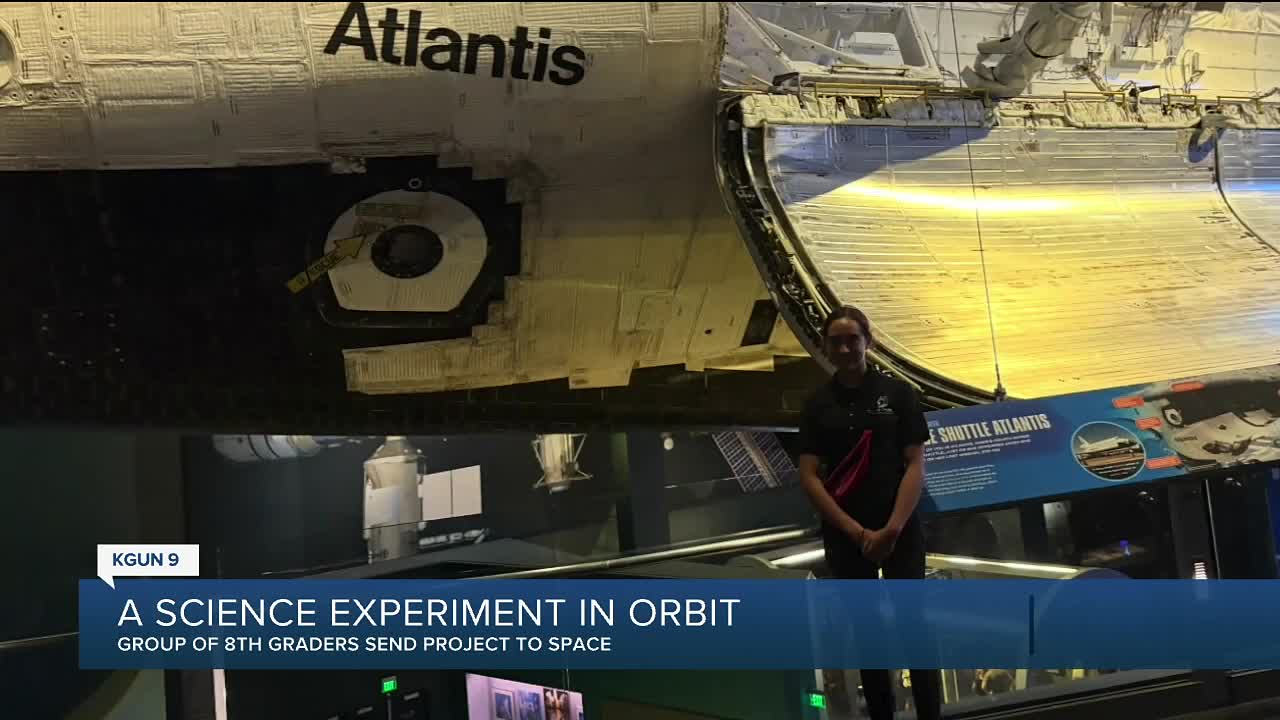NOGALES, Ariz. (KGUN) — A group of Nogales students is taking their curiosity to new heights, literally. A science experiment designed by Team Icarus, a group of middle schoolers from Nogales, is now orbiting Earth aboard the International Space Station.
In August, the students’ project, a crop of green beans suspended in gel, launched on a SpaceX shuttle. The experiments goal focuses on how microgravity affects the plants’ root growth.
For Team Icarus member Alexis Simon, now a sophomore at Nogales High School, the project represents years of budding scientific interest.
“During COVID, I was actually interested in epidemiology, and then I became more interested in genetics at the age of 10,” Simon said, adding that she later grew interested in space as a way to test genetic issues. “There’s lots of different ways that humans can change or engineer fruits and vegetables to grow in space so they can adapt better in microgravity.”
Her father says Alexis’s drive has always been self-motivated. “We never really pushed her. She just naturally went into these things and pushed herself really,” he said. “She’s always been into science and math.”
The team hopes the experiment will show whether green bean roots grow downward, as they do on Earth, or spread outward in zero gravity, a discovery that could help future astronauts grow food in space.
The project was made possible by Higher Orbits, a nonprofit that uses space exploration to inspire students in science, technology, engineering, and math (STEM).
“We use space as the platform to get students thinking about STEM, but also thinking bigger about the possibilities that exist for them personally,” said Michelle Lucas, founder and CEO of Higher Orbits. “It’s also to show that STEM is maybe not only what they think it is.”
Lucas founded Higher Orbits ten years ago after spending over a decade working at NASA’s Johnson Space Center. She says the organization’s goal is to expand the workforce in STEM, inviting those who may not have considered a career in the field.
The Nogales students first connected with Higher Orbits two years ago during the nonprofit’s “Go For Launch” program, where they spent a full day brainstorming experiments alongside astronaut Dawn Thomas.
For Alexis, the experience is fueling her future goals. She's eyeing MIT and Harvard as potential collegiate education routes. She's also thinking about attending school overseas to satisfy her love of travel.
Her post-college plans are even more lofty.
“I hope that one day I can create medicines and hopefully use genetics to create specified medicines for people,” she said. “I think that’s something the world needs a lot of attention to be put on right now.”
The beans will remain aboard the International Space Station for six months as research continues.
More information about the nonprofit and its programs can be found at the Higher Orbits website.
——
Joel Foster is a multimedia journalist at KGUN 9 who previously worked as an English teacher in both Boston and the Tucson area. Joel has experience working with web, print and video in the tech, finance, nonprofit and the public sectors. In his off-time, you might catch Joel taking part in Tucson's local comedy scene. Share your story ideas with Joel at joel.foster@kgun9.com, or by connecting on Facebook, Instagram or X.






